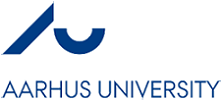Economics

Winter intake start date
2026-02-01
Winter intake deadline
2024-10-10
The two-year MSc programme in Economics gives students an in-depth familiarity with a range of economics and management disciplines. The programme is flexible, as students can specialize within a specific field or a combination of economics and management.
Researchers within the programme work in the fields of accounting, finance, macroeconomics, microeconomics, econometrics, and economics of business. The MSc programme allows students to create a personal academic profile within one or across several of these fields. Progress in the chosen courses is closely followed and monitored to ensure the students’ academic development. Each semester, the department offers about 25 elective courses. The broad range of courses allows you to specialize in a particular field of interest and to compose an individual course programme.
The courses are taught on a high level and requires that students are interested in and are thoroughly versed in mathematics, econometrics, and economic theory.
Na studia magisterskie mogą kandydować wszyscy, którzy ukończyli studia licencjackie lub inżynierskie (studia I stopnia), studia magisterskie lub studiują na ostatnim roku studiów I-stopnia. Studia, które planujesz powinny mieć zbliżony profil do tych obecnych lub ukończonych, ponieważ w procesie rekrutacji kluczowa jest ich zgodność programowa.
Wykaz punktów ECTS – osoby, które są jeszcze w trakcie studiów, muszą załączyć wypis punktów ECTS, w którym będzie wykazane, jakie przedmioty były realizowane na studiach oraz ile punktów za nie otrzymano.
Dyplom ukończenia studiów licencjackich lub inżynierskich – jeśli jesteś absolwentem wyższej uczelni, nie potrzebujesz wypisu, wystarczy załączyć dyplom ukończenia studiów wraz z suplementem (w języku angielskim lub oryginał z tłumaczeniem)
Course description - należy przygotować dokument, zbierający cały sylabus ze studiów licencjackich. Takie sylabusy najczęściej są do pobrania na stronie uniwersytetu. Należy je przetłumaczyć na język angielski (można samodzielnie) i złączyć w jeden dokument. Warto też zapytać w dziekanacie uczelni, czy nie dysponują wersją angielską.
Oficjalna skala oceniania Twojej uczelni - możesz dostać taki dokument w dziekanacie Twojej uczelni lub skonstruować samodzielnie. W obu przypadkach dokument powinien zawierać pieczątkę dziekanatu.
Spełnienie wymagań w zakresie języka angielskiego można udokumentować w jeden z następujących sposobów:
IELTS – 6.5
TOEFL – 83 (Aarhus University TOEFL kod - 8935)
Uwaga: wymagania językowe mogą ulec zmianie. Przed wysłaniem aplikacji upewnij się jakie są wymagania językowe na konkretny kierunek bezpośrednio na stronie uczelni.
W przypadku zdawania certyfikatu IELTs upewnij się, czy uczelnia oprócz wymagań oceny końcowej nie ma również wymagań odnośnie ocen cząstkowych.
Obtained Bachelor’s degree in Economics and Management, general Business Administration, Mathematical Economics or similar.
Along with the application the applicant must upload:
- Course descriptions in English briefly describing the contents of the applicant's specific BA courses or other information that will contribute to describing the contents of the applicant's Bachelor's degree programme (may be translated by the applicant, but certified by the applicant's university).
- Official descriptions of relevant courses to be completed after the application deadline.
- An official description of the marking scale used at the applicant's home university.
Economics and Management graduates are in very high demand in the job market. Many graduates achieve top executive positions in the corporate world (e.g. financial institutions and consulting firms) or management advisory positions in the public sector (e.g. ministries and local authorities).
Graduates of the elite programme acquire analytical skills at a very high level. Potential future employers for elite graduates include Danish as well as international organizations, consulting firms, ministries, government agencies and financial institutions, including commercial banks, mortgage institutions, pension funds, insurance companies and investment banks.
Here you can find information about what kind of job our alumni do as their first job after graduation.
- Administrative - recommendations, preparation, representation of interests, coordination, course administration, inquiries, meetings, follow ups, presentations, reporting and supporting other departments;
- Analysis - handling of data, data extraction, data validation presentation of analysis, interviews, competitor analysis, market analysis, scenario analysis, cost analysis and economic analysis;
- Economy and Accounting - calculations in excel, budgeting, business cases, business intelligence, controlling, data integration, bookkeeping, forecast, environmental report, investments, accounts, economic negotiation (økonomiforhandling), financial management (økonomistyring) and risk management (risikostyring);
- Others - exam, guidance, teaching, development of artworks, trademark management, sale, service, project management, product development, optimisation, price lists, negotiation, contact to costumers, fuel hedging, IT system maintenance, master data maintenance, packing development, construction projects (anlægsprojekter), program management, communication, marketing, teaching, strategy and business development.
